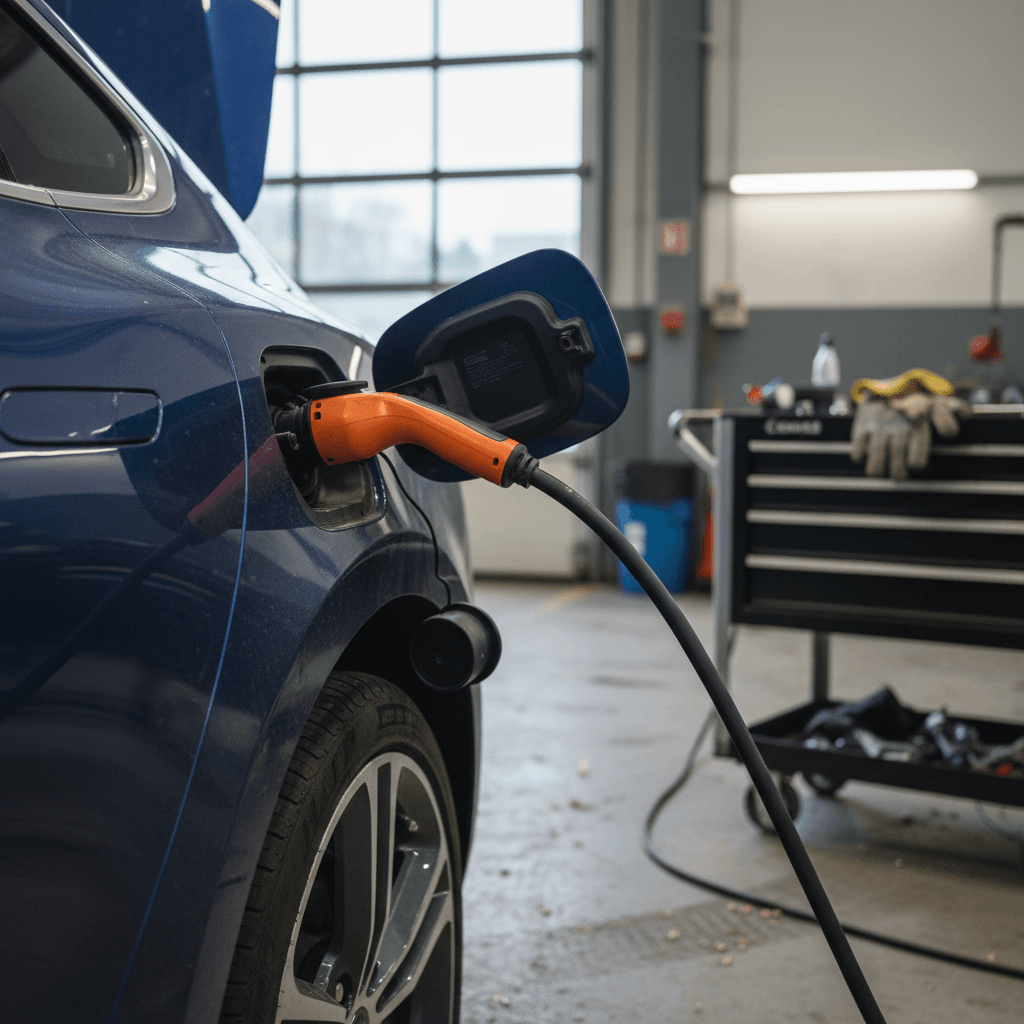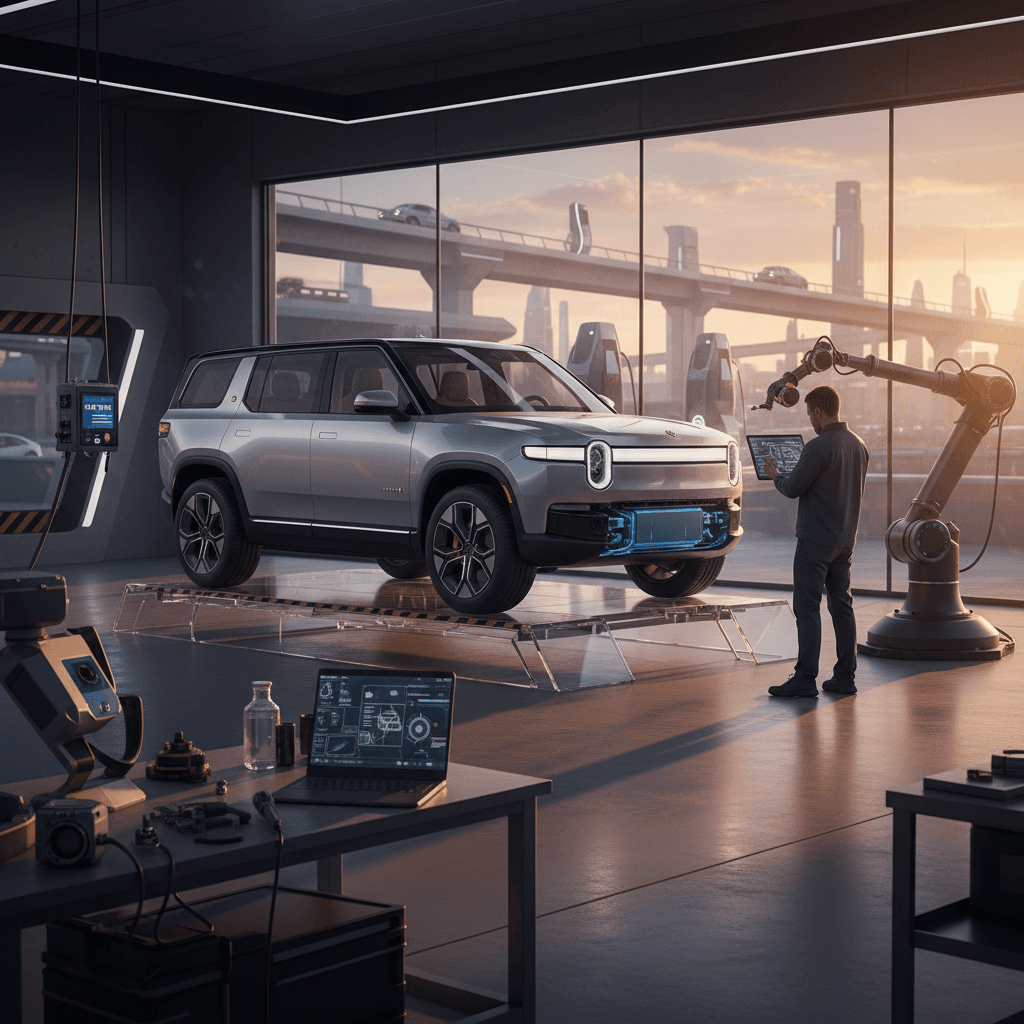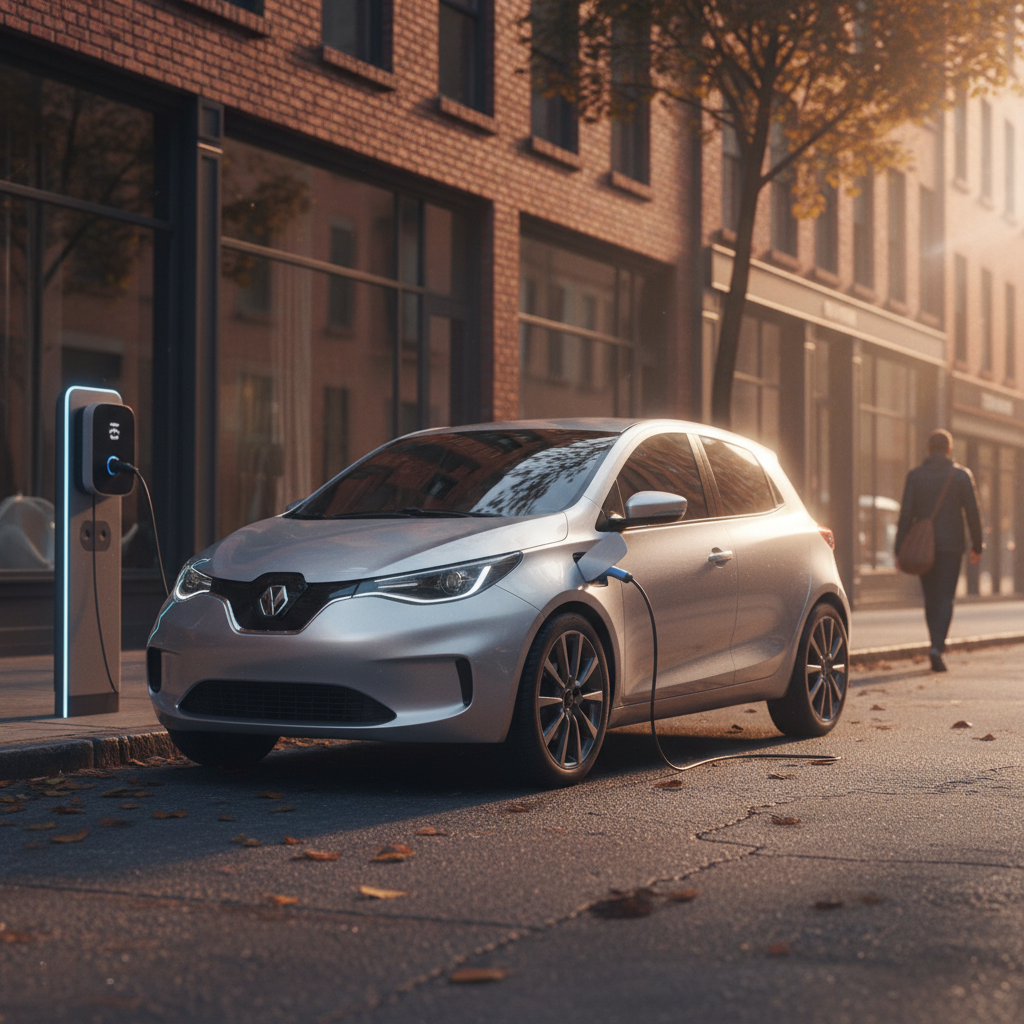If you’ve recently bought an electric car, your first search after leaving the lot is often “EV mechanic near me.” The good news: EVs need far less routine service than gas cars. The bad news: when something does go wrong, not every shop is ready, or qualified, to fix it. This guide walks you through how EV maintenance works, what to expect from an electric car mechanic, and how to find a trustworthy shop in your area.
EVs need fewer shop visits, but better shops
Why “EV mechanic near me” matters more in 2025
Electric vehicles are moving into the mainstream, and many are now reaching the age and mileage where out-of-warranty repairs and battery checks become part of the ownership story. At the same time, many independent shops are still catching up on training and high-voltage equipment. That mismatch is why searching for an EV mechanic near me often feels harder than finding a shop for a traditional gas car.
EV service and repair in context

How EV maintenance differs from gas cars
Before you obsess over finding an EV mechanic near you, it helps to understand what actually needs attention on an electric car. EVs eliminate dozens of engine-related services, but they still have wear items and complex electronics that require expertise.
What you don’t service on an EV
- No engine oil changes or oil filters
- No spark plugs, fuel injectors, or timing belts
- No exhaust system, muffler, or catalytic converter repairs
- No multi-speed automatic transmission service on most models
These missing parts are why EVs are typically cheaper to maintain than comparable gas cars.
What you do service on an EV
- Tires, alignments, and suspension (EV weight wears tires faster)
- Brake fluid and occasional pad replacement despite regenerative braking
- Cabin air filters, HVAC, and cooling systems
- Software updates, sensors, and driver-assistance systems
- High-voltage battery health checks and diagnostics
This is where an EV-savvy mechanic makes a difference: the brake pedal feels the same, but the technology behind it is very different.
Owner tip
What an EV mechanic near you can actually do
Not every EV repair needs a factory service center. A growing number of local shops now advertise EV-trained mechanics and the right safety gear. Here’s the type of work you can usually trust to a good independent EV shop versus what still belongs at a dealer or brand-certified center.
Typical services from an EV-focused mechanic
What your local electric car specialist can handle day to day
Battery health checks
Running diagnostics on the high-voltage pack, estimating remaining capacity, and flagging unusual degradation, especially important on used EVs.
Charging issues
Diagnosing on‑board charger faults, charge-port problems, and home charging complaints (slow charging, charge failures, or intermittent stops).
Brake & safety systems
Working on regenerative braking interfaces, ABS, traction control, and driver-assistance sensors after minor collisions or wheel repairs.
12‑volt electrical & accessories
HVAC problems, infotainment glitches, door locks, lighting, and other low-voltage issues that still require EV‑specific know‑how.
Suspension & tires
Addressing uneven tire wear, alignment, and suspension wear that show up sooner on heavier EVs, especially on rough roads.
Software & diagnostics support
Using EV‑capable scan tools to read manufacturer‑specific codes, support over‑the‑air update issues, and reset warning lights correctly.
Know the limits
Dealer vs independent EV mechanic: which do you need?
Once you find an EV mechanic near you, the next question is whether you really need the dealer for every visit. The answer depends on what’s wrong, how old the car is, and whether you’re still under warranty.
Where to take your EV: dealer vs independent shop
Use this quick matrix to decide who should see your EV first.
| Scenario | Best choice | Why |
|---|---|---|
| Warranty recall or service campaign | Dealer / OEM service | They can perform recall work and software campaigns at no cost to you. |
| Battery pack warning or rapid range loss | Dealer or high‑voltage specialist | High-voltage packs are expensive and tightly controlled; start with the brand facility. |
| Routine maintenance (tires, brakes, filters) | Independent EV mechanic | You’ll often save money and get faster appointments. |
| Minor body damage and warning lights | Independent shop with EV and ADAS tools | They can repair cosmetic damage and recalibrate sensors if they have the right equipment. |
| Charging port won’t lock or unlock | Either, whoever can see you first | Both can usually handle this; ask about parts availability and diagnostic fees. |
| Pre‑purchase inspection for used EV | Independent EV specialist + battery report | You want an unbiased view plus detailed battery health, not just a quick visual check. |
When in doubt, call both a dealer and an independent EV shop, describe the symptoms, and compare their answers, and their willingness to explain.
How to find a qualified EV mechanic near you
Searching “EV mechanic near me” in your maps app is only step one. The real work is sorting out which shops truly understand electric vehicles from those that simply added “EV-friendly” to their website. Here’s a practical approach.
Step-by-step: finding an EV mechanic near you
1. Start with EV-specific directories
Look at your automaker’s service-locator tool and any regional EV associations that list certified or recommended shops. Some national chains now highlight EV-trained locations in their store finder.
2. Read reviews with EV issues in mind
Don’t just look at star ratings. Search reviews for your model, mentions of battery, charging, or software issues, and note how the shop responded when something went wrong.
3. Ask about EV training and equipment
On the phone, ask directly: <strong>How many EVs do you see each month? Which models? What EV-specific training or certifications do your techs have?</strong> A good shop will answer confidently and in plain English.
4. Confirm they have high-voltage safety gear
Shops working on EVs should be able to describe their safety procedures, lockout/tagout steps, and insulated tools or protective equipment for high-voltage work.
5. Check labor rates and diagnostic fees
EV labor rates can run higher, especially at dealers. Ask for their hourly rate, typical diagnostic fee, and whether that fee is applied to the repair if you proceed.
6. Do a low-risk “test drive” visit
Start with a simple service, tire rotation, cabin filter, or basic inspection. You’ll see how they treat you, your car, and your time before trusting them with a bigger job.

Key questions to ask any EV repair shop
Before you hand over the keys, treat your first conversation with an EV mechanic almost like an interview. You’re not just buying a repair, you’re choosing a long-term partner for your car.
- How many EVs, specifically my make and model, have you serviced in the last year?
- What kind of EV or high-voltage training do your technicians have?
- Do you have the ability to access factory service information or official scan tools for my vehicle?
- Can you provide a written estimate and explain the line items in plain language?
- How do you handle software updates or over-the-air update issues?
- If you find additional problems, will you call me before doing extra work?
What a good answer sounds like
What it costs to use an EV mechanic
EVs typically save you money on maintenance overall, but individual repairs, especially those touching the battery, charging hardware, or advanced driver-assistance systems, can be pricey. Understanding the cost structure will help you compare shops and avoid surprises.
Typical EV maintenance costs
- Tire rotation & inspection: Often $40–$120 depending on shop and tire size.
- Brake fluid service: Commonly $120–$200 on EVs, similar to gas cars.
- Cabin air filter replacement: Roughly $50–$150, depending on labor time.
- Basic EV health check: Some dealers include this with service; independent shops may charge an inspection fee.
Because EVs skip oil changes, tune‑ups, and many drivetrain services, your yearly service bill is usually much lower than with a gas car, even if some EV-specific jobs cost more per visit.
Repairs where costs can spike
- High-voltage battery diagnostics or module repair: Advanced work that often requires dealer-level expertise.
- On‑board charger or DC fast‑charging faults: Specialized parts and labor mean higher bills.
- ADAS recalibration: After windshield or body work, sensor calibration can add hundreds of dollars.
- Out-of-warranty electronics failures: Control modules, inverters, or complex wiring issues can be labor-heavy.
This is where a shop’s experience matters: an efficient diagnosis can save hours of billed labor and prevent unnecessary part-swapping.
Don’t ignore early warning signs
Buying a used EV? How Recharged and EV mechanics fit together
If you’re shopping used, your “EV mechanic near me” search should start before you sign anything. Battery health and prior repair quality matter far more on an electric car than on a comparable gas vehicle. That’s exactly the gap Recharged was built to fill.
Where Recharged fits into your EV service game plan
Data and diagnostics first, local EV mechanics for ongoing care
Battery health, verified
Every vehicle sold through Recharged comes with a Recharged Score Report that includes verified battery health, so you’re not guessing about degradation before you buy.
That gives both you and any future EV mechanic a clear baseline to work from.
Local service after the sale
Once you own the car, you’ll still want a nearby EV mechanic for tires, brakes, and real‑world issues. Bringing your Recharged Score to the shop helps them understand the vehicle’s history instantly.
Financing, trade-in & fair pricing
Recharged offers financing options, trade‑ins, and transparent pricing that already factors in battery condition and expected maintenance, making it easier to budget for future shop visits.
Digital experience, local support
You can buy your used EV entirely online with nationwide delivery, or visit the Recharged Experience Center in Richmond, VA, and then pair that purchase with a trusted EV mechanic near you for day‑to‑day service.
Smart move for used buyers
EV mechanic near me: FAQs
Common questions about finding an EV mechanic
The bottom line on finding an EV mechanic near you
Searching for an “EV mechanic near me” is less about finding the closest shop and more about finding the right one. EVs don’t need frequent service, but when they do, the quality of the diagnosis, tools, and training matters. Start by understanding what your electric car actually needs, then look for shops that can clearly explain their EV experience, equipment, and pricing.
If you’re still shopping, Recharged helps you begin that relationship on the right foot, every used EV we sell comes with verified battery health, transparent pricing, financing options, and expert support so you know exactly what you’re buying before your mechanic ever sees the car. From there, pairing your purchase with a capable local EV mechanic gives you the best of both worlds: data‑driven confidence up front and trusted hands-on care for the long haul.

